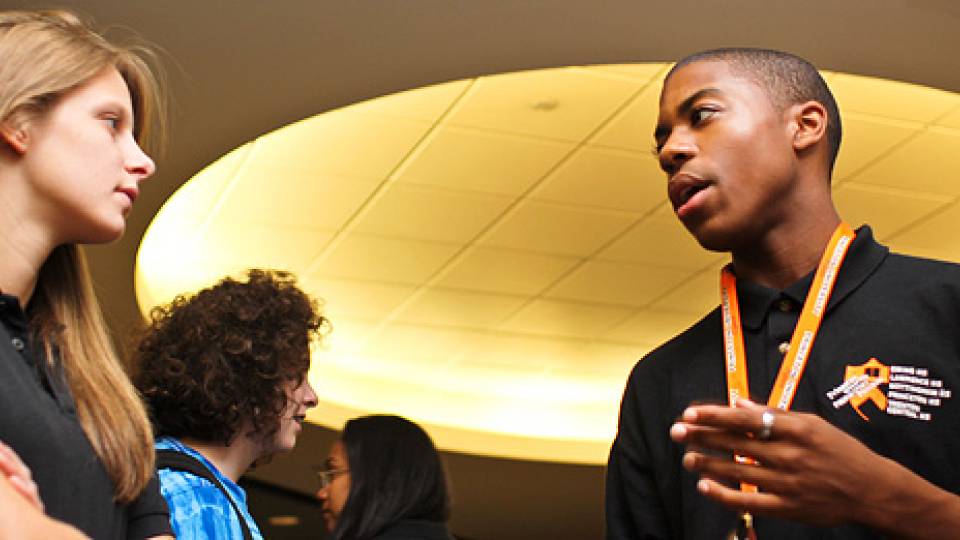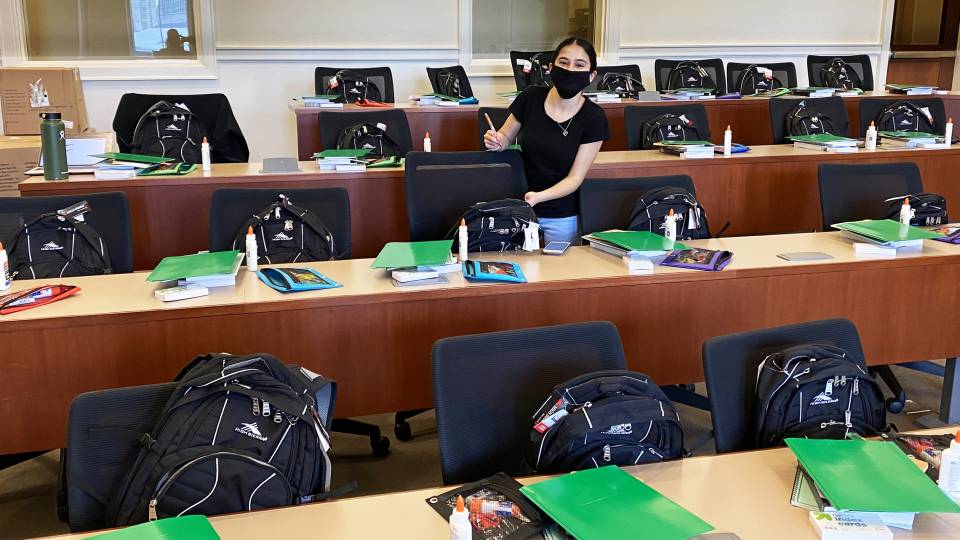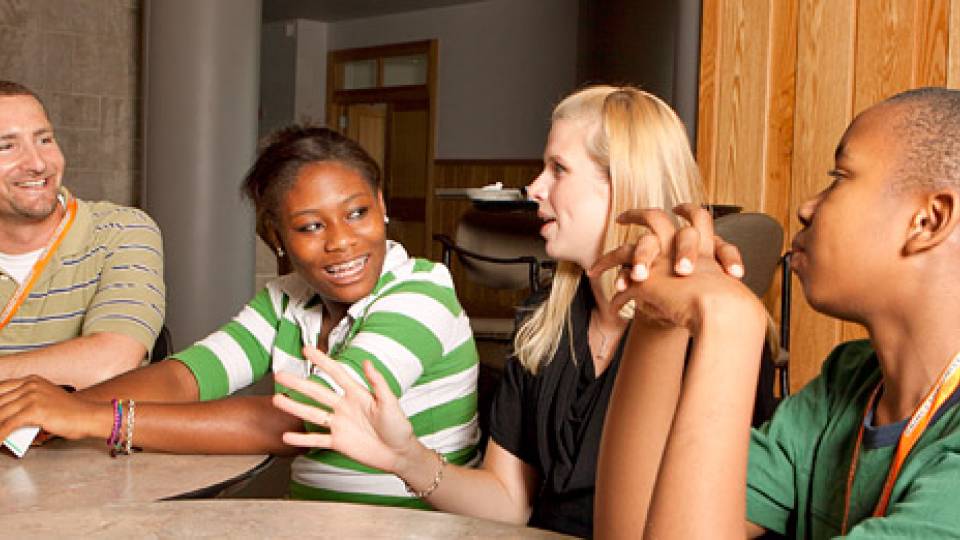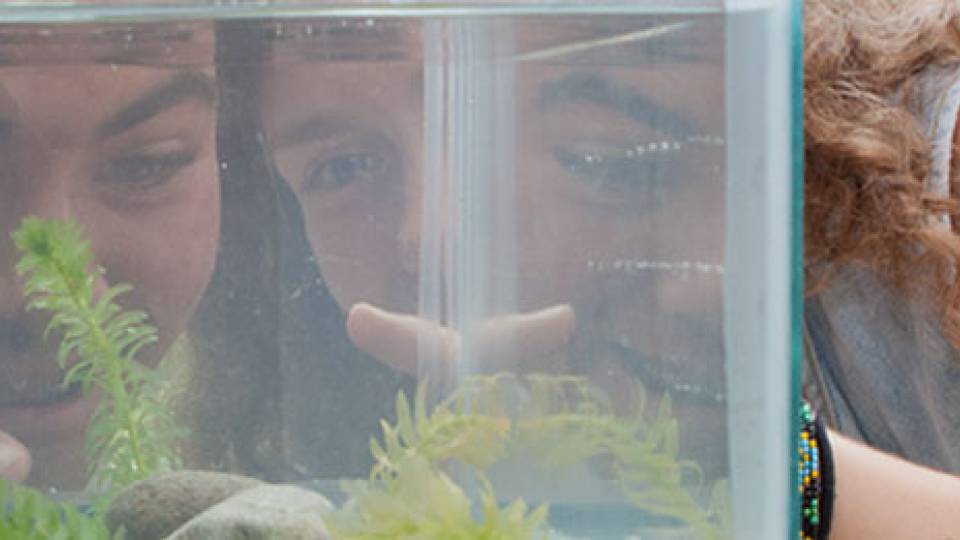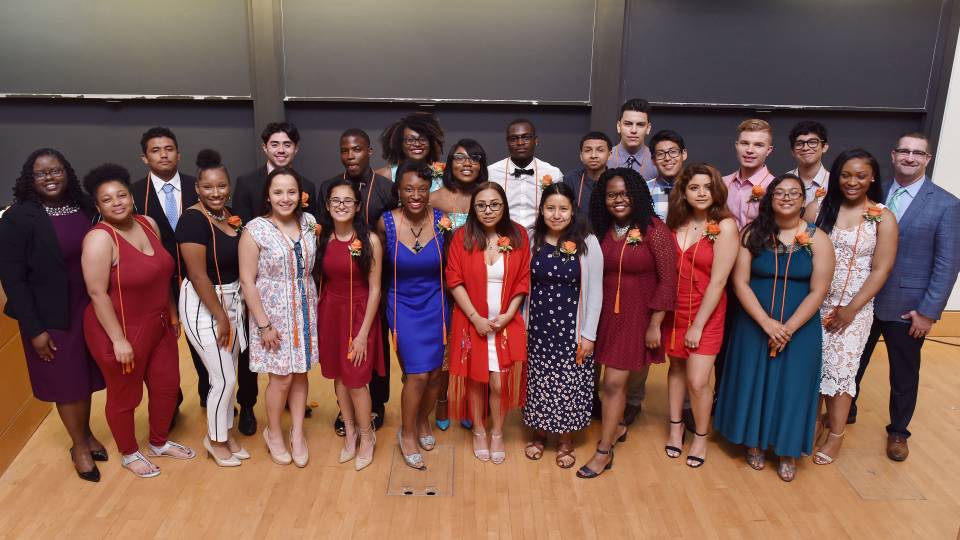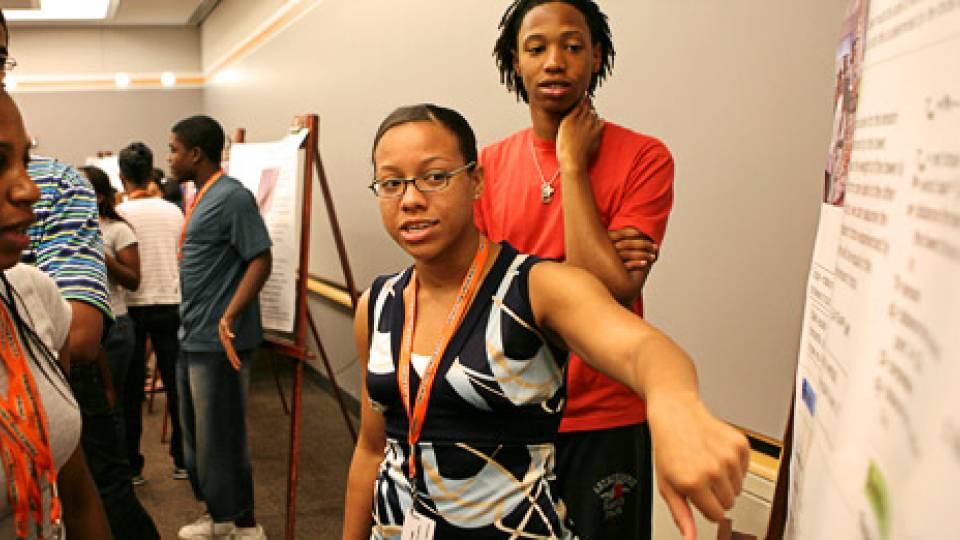The 74 high school students participating in the Princeton University Preparatory Program's (PUPP) summer institute have spent the past six weeks building up academic and life skills designed to help the high-achieving, low-income students succeed in college.
Alumni of the program, meanwhile, have been busy across the University's classrooms, labs and offices pursuing a range of interests that demonstrate both what they have learned from PUPP and the opportunities it has opened to them.
For example, Leslie Castrejon is working as an intern at Community House, a program committed to closing the minority achievement gap in the Princeton community. Hira Ahmad is participating in the Princeton Center for Complex Materials Research Experience for Undergraduates program, and Stephen Moore is part of the Public Policy and International Affairs Junior Summer Institute at the Woodrow Wilson School of Public and International Affairs. Jacqueline Hernandez, Shamelle Ingram and Ashley Vinson are back at PUPP as part of the staff.
"The summers during college are key spaces for enhancing both study in a particular field, study or service locally or abroad, and for developing skills and experience in the workplace," said Jason Klugman, director of PUPP and program associate in the University's Program in Teacher Preparation. "We highly value these opportunities because they allow our alumni — like their collegiate peers — to build their professional and academic resumes, as well as help them engage with a network of folks outside their individual college."
Founded in 2001, the tuition-free PUPP program works with students from partner schools in Mercer County, N.J., who apply during their freshman year of high school. Participants attend summer institutes at Princeton for three years, taking courses in college preparation, art, literature, writing, math and science. This summer, the institute is focusing on the history and current challenges facing Native Americans. PUPP scholars are reading fiction and nonfiction works on the topic and studying the work and life of Native American author Sherman Alexie.
During the school year, scholars meet regularly with other program participants and PUPP staff to help them prepare to apply to colleges and succeed once they enroll. There are cultural-enrichment outings to a Broadway show, an opera and plays, along with SAT reviews and a college tour.
PUPP scholars have a 70 percent graduation rate at a wide range of selective colleges and universities around the country, a success rate above average for students overall and dramatically higher than the average for students from similar backgrounds.

PUPP graduate Stephen Moore, a rising senior at Muhlenberg College, has spent much of the summer participating in the Public Policy and International Affairs Junior Summer Institute at the Woodrow Wilson School of Public and International Affairs.
Program opens doors
For Moore, a rising senior at Muhlenberg College in Allentown, Pa., the Wilson School summer program is the latest stop on a long journey that PUPP has shaped significantly. A native of the West African nation of Liberia, Moore and his family were forced to flee a civil war there and spent nine years in a refugee camp in Ghana before settling in Trenton.
Moore said the assistance of PUPP's counselor was especially helpful when the time came to submit his college application.
"We stayed at school one night until about 7 p.m. just going through the application," said Moore, a 2009 graduate of Trenton Central High School. "Without his help it would have been a lot more difficult for me to do what was necessary to really make my application strong."
Moore has his sights set on a career in global health and international development. He hopes to focus on addressing health care inequalities and improving access for at-risk populations. The Wilson School program offers seminars and classes on topics that Moore says will help him achieve his goals — including policy analysis, statistics and economics — along with helping him make valuable personal connections.
"When I apply for an opportunity and then I receive it, I know that if I hadn't come to college, it wouldn't have been possible. And without PUPP, I don't really even know if I would be in college," Moore said. "Now I have all these opportunities."
Breaking ground
The opportunities created by her PUPP experience have led Vinson, a rising junior at Princeton, back to the program as its first alumni teaching assistant. The Ewing High School graduate is assisting with the summer institute and providing mentoring and motivation to PUPP scholars.
"I got a lot from PUPP and I want to be sure that continues to happen," said Vinson, who is majoring in psychology. "I hope I have some kind of experience that will help me do that job better. I think it's a really important role and when done better can make a big difference for the students."

Ashley Vinson, a rising Princeton junior who is majoring in psychology, is the first graduate of PUPP to return to the program as a teaching assistant. She is assisting with the summer institute and providing mentoring and motivation to PUPP scholars.
Like Vinson, Hernandez is breaking ground at PUPP. The 2012 Rutgers University graduate is beginning a 2 1/2-year term as the first PUPP alumni fellow. In the full-time position, she will be working to help the program stay in touch with its alumni and continue to offer support to those who might need a helping hand pursuing their college degree.
"I just feel that no matter how ambitious you are, how goal-oriented, there are a lot of things that bring you down," said Hernandez, a 2008 graduate of Trenton Central High School. "There's a lot you can do by yourself but having someone to guide you and to talk to makes it so much easier and motivates you to keep going even when everything is pushing you back."
Ahmad's PUPP experience has opened the doors to Princeton's labs, where the rising junior at Carnegie Mellon University is spending the summer researching the electrical and mechanical properties of amorphous carbon nanofibers. A graduate of Steinert High School in Hamilton, Ahmad said the most important part of her PUPP experience was the style of learning.
"We were taught how to apply what we learned to how we see the world," she said. "Most importantly, we learned from each other instead of a textbook. This broadened our minds and brought us closer together."

